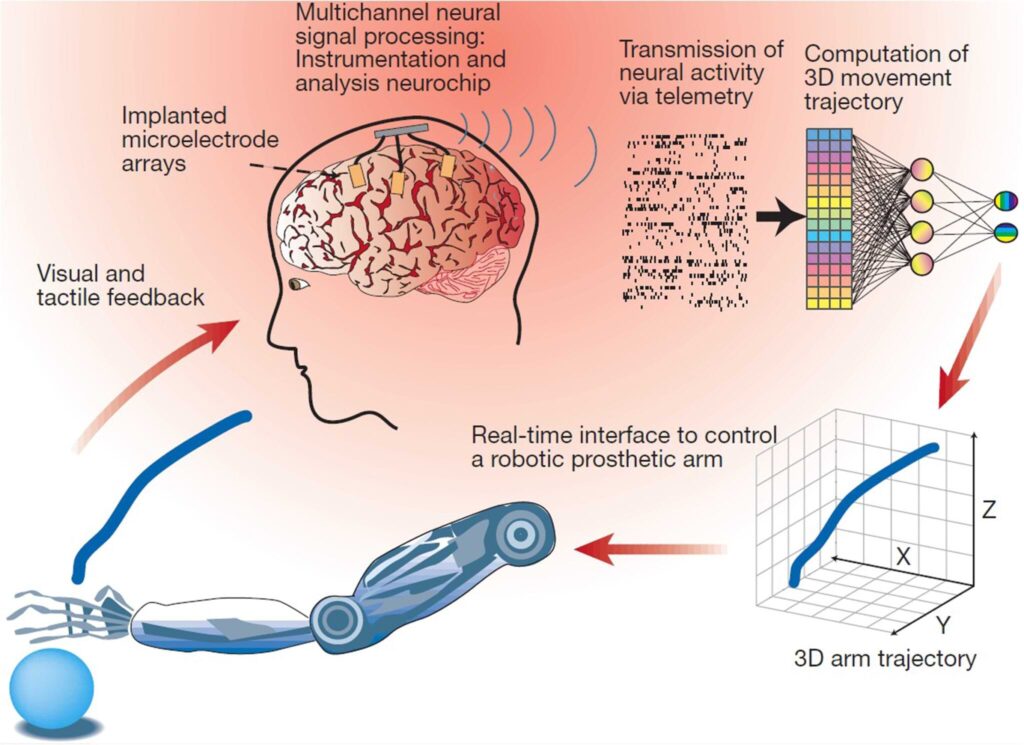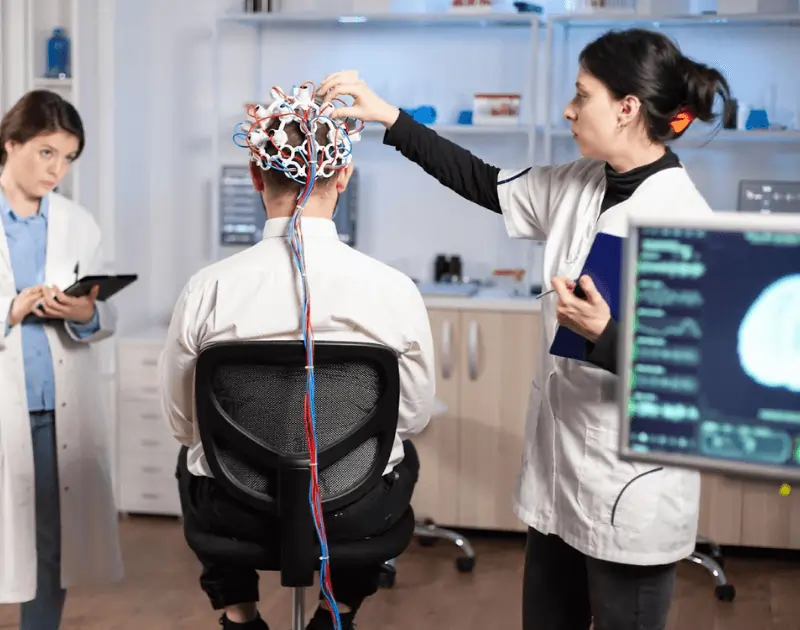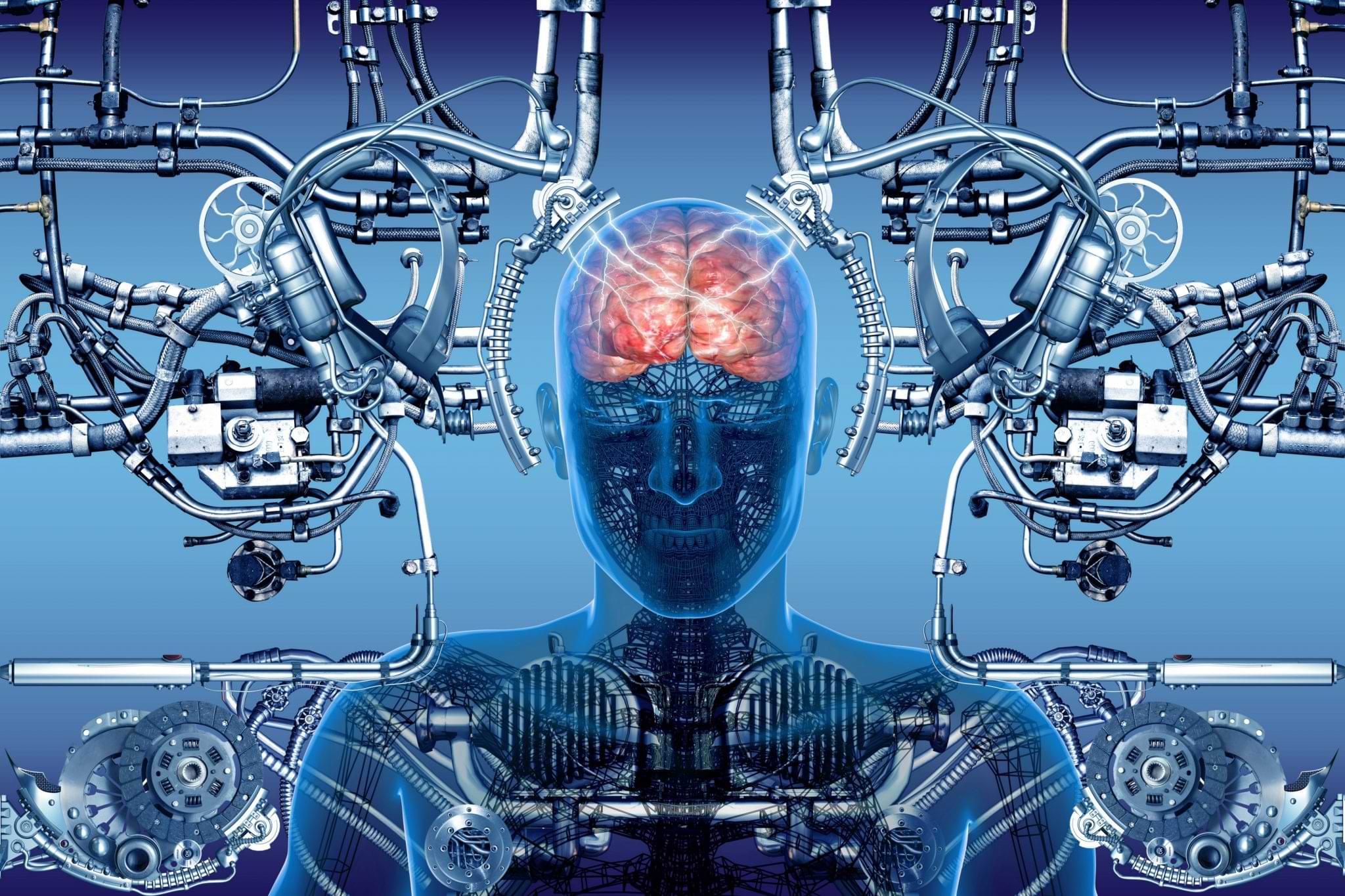In recent years, the fusion of neuroscience and technology has given rise to groundbreaking advancements in neurological enhancement. This field explores methods to augment human cognitive and physical capabilities, leveraging brain-computer interfaces (BCIs), neuroprosthetics, and AI-driven neural augmentation. As these technologies evolve, they promise to revolutionize medical treatments, enhance human abilities, and spark ethical debates.
Brain-Computer Interfaces (BCIs)
One of the most transformative innovations in neurological enhancement is the development of brain-computer interfaces (BCIs). BCIs facilitate direct communication between the brain and external devices, allowing individuals to control machines using their thoughts. Companies like Synchron and Neuralink have made significant progress in this area, helping individuals with neurological disorders regain autonomy. Recent developments include AI-integrated BCIs that enable paralyzed individuals to operate devices like computers and smart home systems, offering newfound independence.
Beyond medical use, BCIs are also being explored for applications such as gaming, education, and military operations. Advanced BCIs could enable faster learning, improved focus, and even seamless human-machine collaboration. While these applications sound promising, concerns about security risks and ethical dilemmas remain.
Neuroprosthetics: Restoring and Enhancing Capabilities
Neuroprosthetics are another major breakthrough, designed to restore lost functions due to injury or disease. These devices, such as robotic limbs and sensory implants, work by interpreting neural signals to execute movements or provide sensory feedback. A recent study from the University of Chicago demonstrated how neuroprosthetic hands can deliver realistic touch sensations, offering a profound leap forward for individuals with amputations or paralysis.
In addition to restoring lost function, neuroprosthetics are also being developed to enhance human capabilities. Scientists are exploring the possibility of exoskeletons controlled by neural signals, allowing individuals to gain superhuman strength and endurance. These advancements could have significant implications for labor-intensive industries, sports, and military applications.

Cognitive Enhancement and Ethical Considerations
Beyond medical applications, neurological enhancement technologies are increasingly being explored for cognitive augmentation. Brain stimulation techniques, such as transcranial electrical stimulation, have shown promise in boosting memory, focus, and problem-solving abilities. However, this raises important ethical and societal questions:
- Equity and Accessibility: Will these technologies be available to everyone, or will they deepen socioeconomic divides?
- Privacy Concerns: How will brain data be protected from unauthorized access?
- Human Identity and Authenticity: To what extent should we enhance cognitive functions before we alter fundamental aspects of human identity?
- Dependence on Technology: If cognitive enhancement becomes widespread, will society become overly reliant on artificial intelligence and neural augmentation?
Neurological Enhancement in Everyday Life
While much of this technology is still in development, some forms of neurological enhancement are already becoming part of daily life. Wearable brainwave-monitoring devices help users optimize focus and relaxation, while brain-training apps claim to improve cognitive abilities. As these technologies improve, their adoption in workplaces and schools could redefine productivity and learning.
Moreover, the entertainment industry is beginning to explore neurotechnology in virtual reality (VR) and augmented reality (AR). BCIs could eventually allow users to interact with digital environments using only their thoughts, paving the way for immersive gaming and communication experiences.

Looking Ahead: The Future of Neurotechnology
As research continues, the integration of neuroscience and technology will open new frontiers in human potential. While the benefits are vast, addressing the ethical and social challenges will be crucial to ensuring responsible development. Whether in medical rehabilitation or cognitive enhancement, neurological advancements are poised to redefine what it means to be human.
With these possibilities on the horizon, it is essential to balance innovation with ethical responsibility. Policymakers, scientists, and the public must collaborate to create regulations that promote safe and fair access to neurological enhancements.
What are your thoughts on neurological enhancement? Do the potential benefits outweigh the ethical concerns? Join the conversation in the comments below!






No responses yet